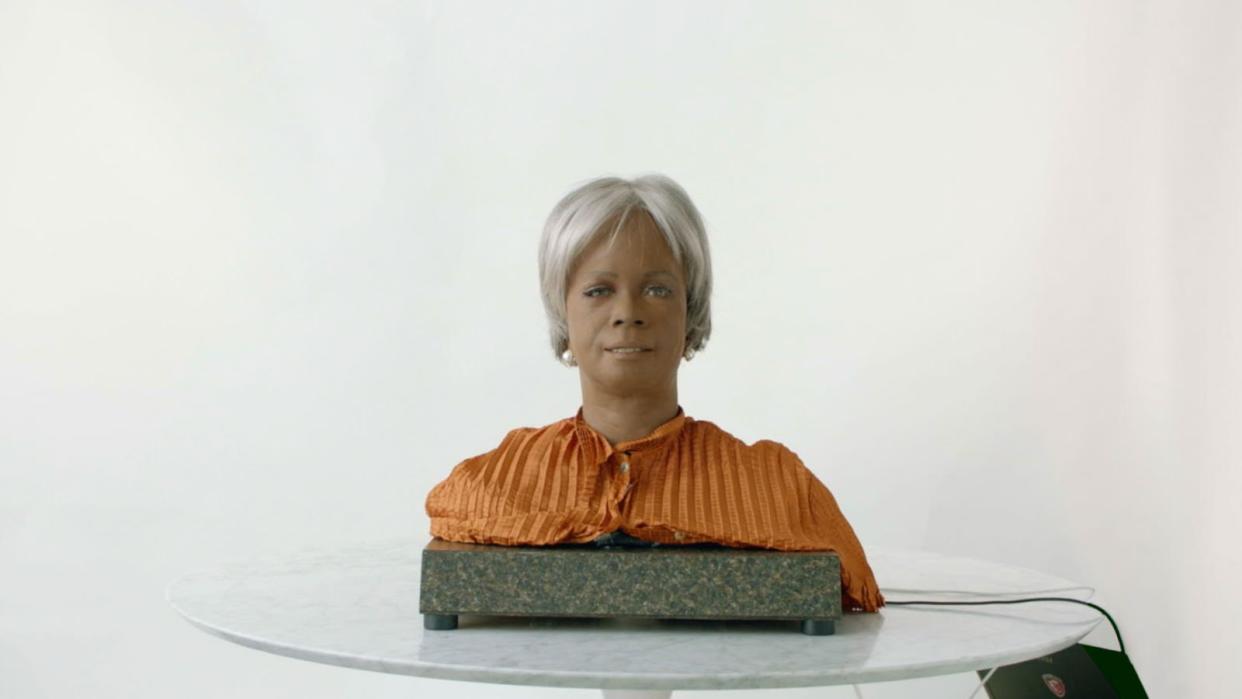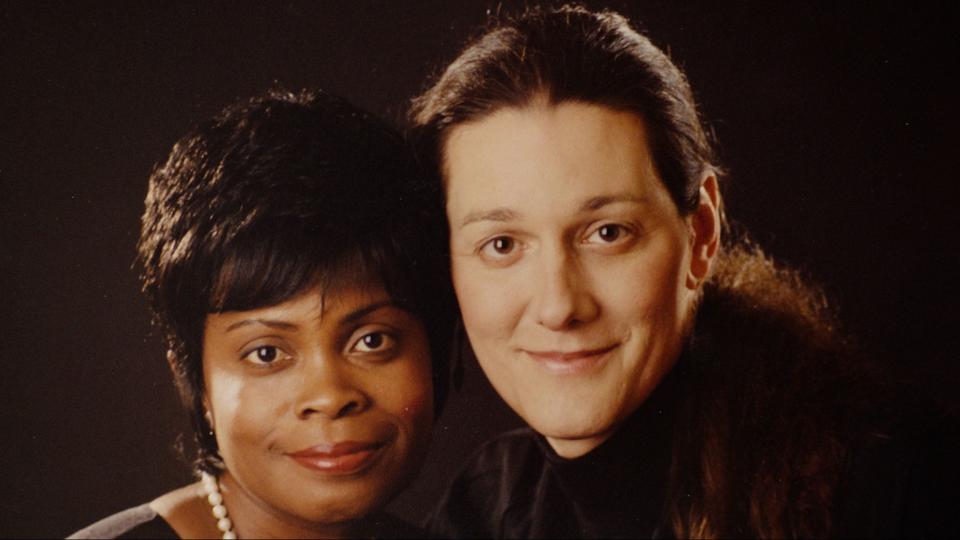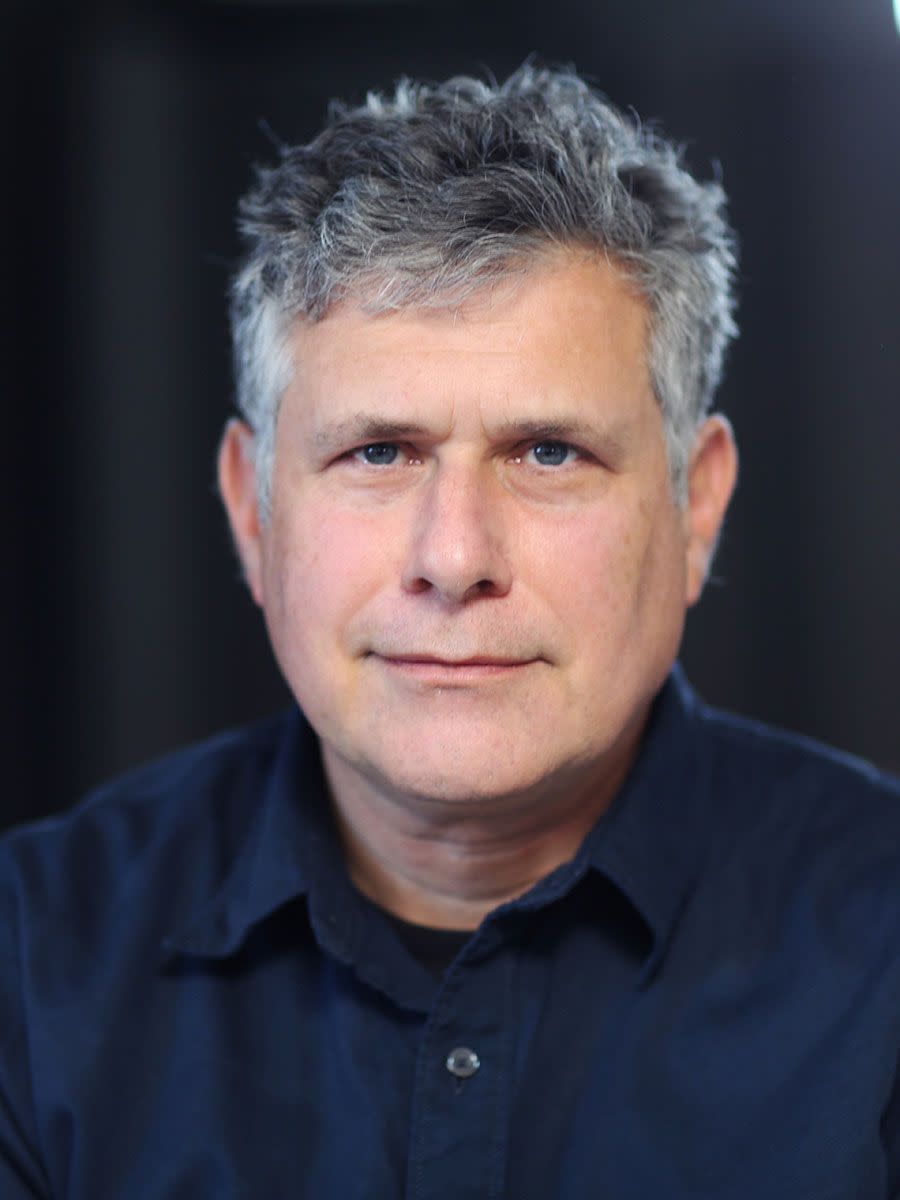A Sundance Doc Wonders: Can A.I. Create an Everlasting Love?

In some movies, the quest for immortality is about escaping death. But the new Sundance documentary “Love Machina” is a different take. For Dr. Martine and Bina Rothblatt, the couple at the heart of the film, it’s about prolonging love.
“There’s an energy when Martine and Bina walk in a room. You feel it… and it’s kind of electric,” says Peter Sillen, director and producer of “Love Machina.” “With this film, it’s interesting to see people who are very cognizant of their relationship as stronger together than apart and how that forges and solidifies their resolve to accomplish great things.”
More from IndieWire
Like digital immortality: The documentary focuses on their journey to build Bina48, an AI humanoid robot based on an extensive “mindfile” of human Bina’s memories and thought patterns.
“Martine said the idea of just being born and living and dying is going to be thought of as really old school one day,” says Sillen, “People are going to be around in different iterations for a long time after they’re gone.”
We spoke with Sillen to learn how he captured the evolution of their extraordinary story and how Dropbox helped him organize his workflow from start to finish.

How did you first hear about Martine and Bina’s plan to create an AI mindclone?
I was visiting my older child who was living in Berlin one summer. Producer Brendan Doyle and I got an email about this possible shoot a friend of ours wanted to do about an AI going to a college class. It was kind of fascinating. I started digging a little deeper and realized there was a little bit more to this story. I thought, sometimes you just have to trust your gut and go with it.
We shot sporadically during this class called “The Philosophy of Love.” It was a great entry point to the story for us because it summarized so much of what the project is about—this incredible love and how they were using technology to continue that love into the future, infinitely. We just got hooked.
After hearing about the concept, did you wonder what it would be like to have your own digital doppelgänger?
I’m a little bit more analog, but it does pique your curiosity. It’s definitely a little weird. But Martine and Bina are futurists. They’re looking 20, 30, 40 years down the road. They’re not looking at today. But when you couple their futurism with the positivity they bring, it’s an interesting mix.
I think it’s something that’s missing in the conversation right now. There’s a lot of doom and gloom about all the bad things that can happen. A big part of this film is trying to spark conversation about what needs to happen in the space of AI and how do we create guardrails? How do we make this a positive technology for humanity?
Martine wrote a book called “Virtually Human” in 2014. At the end of it, there’s the sense that all of this technology is really just a mirror to ourselves. The film tries to embrace that humanistic viewpoint, keeping as a North Star this idea: Together, we can build something that is beneficial to humanity.

How did you approach capturing that perspective in an authentic way?
I come from a camera background, so I really love going out and shooting. I’m kind of a camera geek. So I like to just grab a camera and start shooting, and whatever draws me, draws me in. Early on, Martine was very into the fact that we were making a film about Bina48, but she didn’t want to be involved directly. She gave us her blessing and said, “You can use anything of me out there in the world, but I just don’t want to participate right now.”
So we respected that and started building this archive of her speaking engagements at all these different conferences. We were amazed that we were able to create a film with just that material, but it was a one-dimensional portrait. Once we had that, though, we were able to show Martine that we were trying to go a little deeper and do something more about their true vision. Once we got Martine involved, we were able to crack the code on the film and start to shape it in a way that we really felt good about.
How did you put together the right team of collaborators for this project?
This is a truly independent film. It’s not like some big seven-figure budget where you can just throw money at problems. We really had to be resourceful, organized, and communicative. So we put together a small, scrappy, but mighty team. Everybody’s come together and done amazing work, from Brendan Doyle, my producing partner, to Conor McBride, Ben Mercer, and Steffie Van Rhee. With COVID, a lot of people were working remote. Conor is from Ireland, Ben is from England. Steffie’s from Amsterdam. At different times, different team members are overseas, back and forth, so we really had to be organized.
How did Dropbox help you all stay organized as you were collaborating remotely?
We’ve got two folders set up that are pretty massive. The production one, then the post production one. It’s our catch-all for everything, really. We can all get on it. It’s both a working day-to-day kind of set up, and also a repository for everything we need down the road. There are folders that I don’t go into at all on certain days, for weeks or months. Then all of a sudden, I know exactly where it is. On the day that I need to go there, it’s there.
What do you hope audiences will feel when they see “Love Machina”?
I hope that people come out inspired to have conversations about what positive can come out of technology and AI. I also hope people realize how important it is to be a part of that conversation—not just the immediate conversation, but the bigger conversation of representation in AI and making sure it’s a beneficial technology.
“Love Machina” premieres at the 2024 Sundance Film Festival January 19 in-person and January 25 online. For details, visit festival.sundance.org
This interview has been edited and condensed for clarity.
Dropbox supports and champions independent makers, crews, and teams behind the camera who bring their unique perspectives to life at the Sundance Film Festival. We’re proud that over 60% of films at the 2024 Sundance Film Festival leveraged Dropbox in their filmmaking process.It takes a monumental effort for film projects to go from ideation to completion, and Dropbox is dedicated to helping filmmakers get their projects across the finish line faster. Filmmakers used Dropbox as one organized homebase to keep video files secure, to remotely collaborate with teams around the world, and to get real-time video feedback with Dropbox Replay.
Best of IndieWire
Christopher Nolan Movies, Ranked from 'The Dark Knight' and 'Tenet' to 'Dunkirk' and 'Oppenheimer'
Where to Watch This Week's New Movies, Including 'Argylle' and 'How to Have Sex'
Christopher Nolan's Favorite Movies: 40 Films the Director Wants You to See
Sign up for Indiewire's Newsletter. For the latest news, follow us on Facebook, Twitter, and Instagram.


